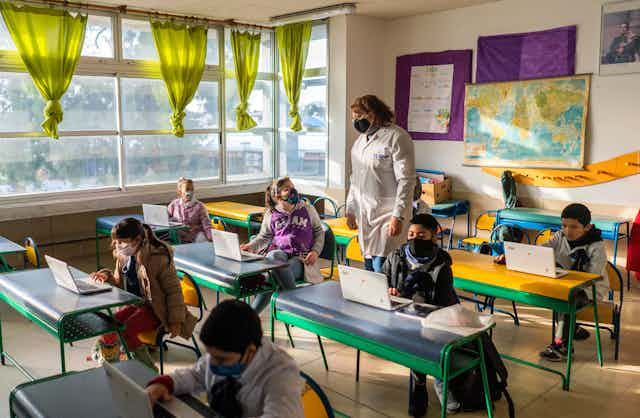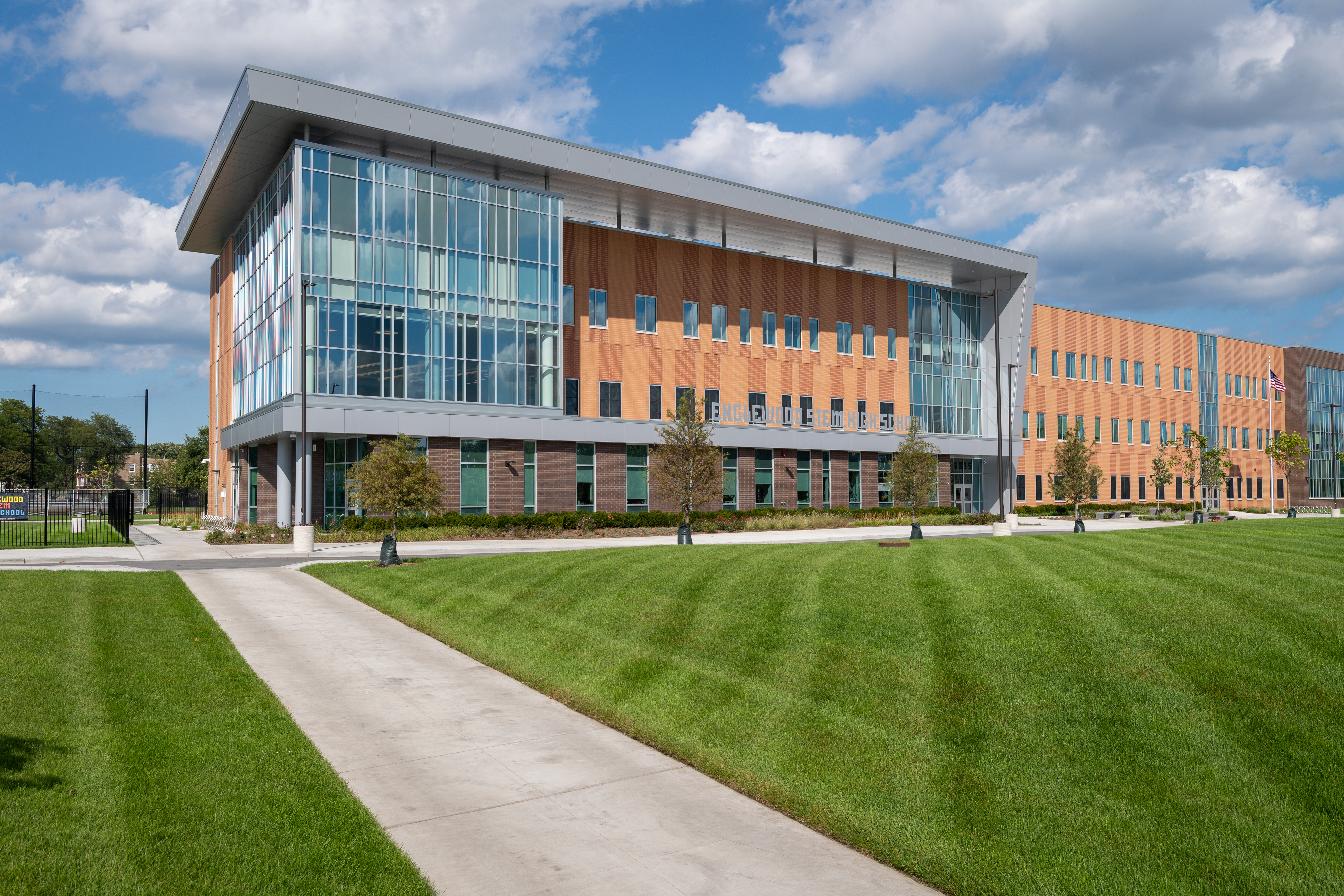Discover the Conveniences of Campaigning For: Save Temecula Schools
Discover the Conveniences of Campaigning For: Save Temecula Schools
Blog Article
How Schools Play a Vital Duty in Shaping Future Leaders and Pioneers
By integrating project-based understanding and interdisciplinary researches, educational institutions challenge pupils to evaluate and synthesize complicated info. Teachers serve as mentors, leading students and nurturing their capacity, while extracurricular activities better create management skills and resilience.
Cultivating Vital Assuming
In today's quickly progressing globe, cultivating important thinking within schools has actually become critical. As culture grapples with significantly complex global challenges, the capacity to examine, review, and synthesize information is necessary. Institutions play an important duty in establishing these skills, preparing trainees to navigate and resolve complex problems with notified, reasoned decisions.
To cultivate important thinking, educators employ numerous pedagogical strategies that urge energetic discovering and intellectual interaction. Class conversations, problem-based understanding, and Socratic examining are crucial in promoting analytical and reflective mind. By challenging trainees to interrogate assumptions and think about several perspectives, these methods make sure a much deeper understanding of subject beyond rote memorization.
In addition, incorporating important believing throughout the curriculum enhances its importance and applicability in varied contexts. Subjects such as mathematics, science, history, and literature each deal unique chances to establish pupils' crucial faculties. Examining historic events requires examining sources and recognizing context, while scientific questions demands strenuous hypothesis testing and evidence-based thinking.
Inevitably, instilling essential assuming skills in pupils outfits them with the cognitive tools required for long-lasting knowing and versatility. It is via this foundational capability that future leaders will certainly have the ability to innovate, solve troubles, and add meaningfully to culture.
Urging Creativity
Embracing creativity within educational frameworks galvanizes trainees to believe past traditional borders and check out cutting-edge services. By integrating imaginative undertakings and creative thinking workouts into the curriculum, schools grow a setting where originality and creative thought are valued. This method not only improves the educational experience but additionally equips pupils with the ability to take on real-world difficulties in unique methods.
Educational institutions can cultivate creativity through varied ways such as project-based understanding, interdisciplinary studies, and the unification of arts and technology. Project-based knowing, for circumstances, motivates students to use their understanding in functional, commonly collaborative, jobs that demand innovative analytical abilities. Interdisciplinary researches enable pupils to attract links in between different topics, thus widening their viewpoints and boosting their imaginative capacities.
In addition, giving pupils with opportunities to engage with emerging technologies, such as coding and electronic design, even more nurtures their creative capacity. These activities motivate trainees to experiment, fail, and iterate, which are important parts of the innovative process (Save Temecula Schools). By maintaining a helpful setting where trial and error is motivated, colleges can make certain that students create the self-confidence to seek innovative ideas
Fundamentally, nurturing creativity in educational settings is indispensable for forming future leaders and innovators efficient in addressing complex international problems with resourcefulness.
Encouraging Cooperation

Executing group-based knowing components and cooperative jobs permits trainees to experience the characteristics of teamwork firsthand. This not only prepares them for the joint nature of modern work environments however likewise nurtures management qualities as they frequently useful content have to tackle duties such as task managers or group coordinators. Furthermore, collaboration in the class can damage down social obstacles and advertise inclusivity, guaranteeing that each student really feels valued and listened to.
In addition, incorporating technology can further sustain joint initiatives. Devices like common interactive platforms and digital offices make it possible for trainees to interact efficiently, also outside the classroom. As trainees create these collaborative abilities, they are better outfitted to tackle complicated challenges and innovate, laying the groundwork for their future roles as leaders and pioneers.
Duty of Educators as Advisors

Mentorship entails customized interest, where educators identify and support individual strengths and address weak points. Save Temecula Schools. Via individually interactions, instructors can tailor their guidance and support to fulfill each student's one-of-a-kind requirements, cultivating a sense of confidence and strength. This customized strategy grows a development frame of mind, urging trainees to view failures as opportunities for finding out and development
In addition, educators work as good example, demonstrating the values of empathy, perseverance, and honesty. Their actions and mindsets give a blueprint for trainees to mimic, instilling a feeling of honest responsibility and social understanding. By developing a inclusive and helpful class environment, educators make it possible for students to establish interpersonal skills that are critical for reliable management.
Fundamentally, the mentorship provided by teachers lays a fundamental framework for the development of future leaders, furnishing them with the knowledge, skills, and values needed to stand out in an ever-evolving globe.
Impact of After-school Activities
When incorporated successfully into the instructional structure, extracurricular tasks significantly improve pupil development and management capacity. These activities provide pupils with chances to explore interests beyond the standard educational program, fostering a well-rounded ability set.
Students engaged in songs, argument, or dramatization clubs find out to assume critically and technique issues from diverse viewpoints. By working together with peers from different histories, pupils likewise establish compassion and communication skills, important characteristics for future leaders.
Research suggests that trainees included in such programs have a tendency to have higher grades and better check these guys out presence documents. Therefore, schools that prioritize a balanced strategy to education, integrating durable extracurricular programs, are more likely to produce innovators and leaders furnished to satisfy the obstacles of the future.

Final Thought
In conclusion, colleges dramatically shape future leaders and innovators by supporting essential thinking, imagination, and cooperation amongst students. By promoting a supportive environment that values individual strengths and team effort, institutions outfit students with the needed skills to navigate future obstacles and drive innovation.
As students develop these collaborative abilities, they are better outfitted to deal with intricate obstacles and innovate, laying the groundwork for their future duties as pioneers and leaders.
By promoting critical thinking and analytical skills, educators assist students navigate complex obstacles, preparing them for leadership duties in different fields.
By teaming up with peers from various histories, trainees likewise establish compassion and interaction skills, vital traits for future leaders.
In verdict, institutions considerably shape future leaders and innovators by supporting crucial reasoning, creative thinking, and partnership amongst pupils. By fostering an encouraging atmosphere that values private staminas and synergy, colleges outfit students with the essential abilities to browse future obstacles and drive innovation.
Report this page